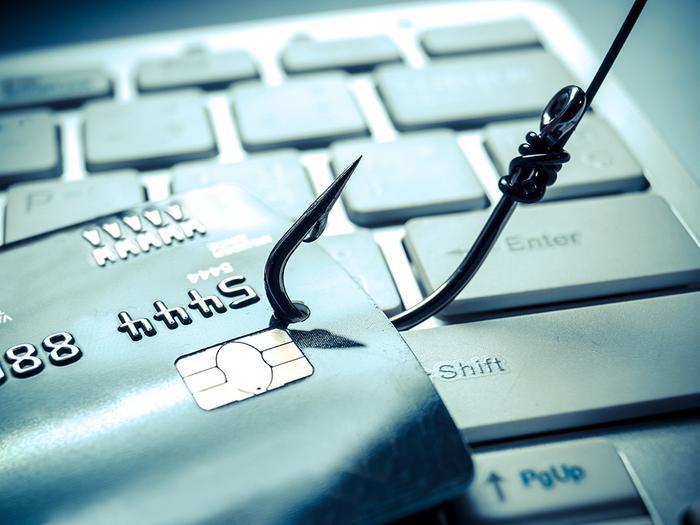D-Link inadequate security on internet cameras and routers
 (Truman Lewis @ ConsumerAffairs) The Federal Trade Commission has been warning electronics manufacturers that they must do more to protect consumer privacy. Its latest action is a complaint against D-Link, the Taiwan-based company that mnufactures network routers, internet cameras and other devices.
(Truman Lewis @ ConsumerAffairs) The Federal Trade Commission has been warning electronics manufacturers that they must do more to protect consumer privacy. Its latest action is a complaint against D-Link, the Taiwan-based company that mnufactures network routers, internet cameras and other devices.
The complaint alleges that inadequate security measures taken left the devices vulnerable to hackers and put U.S. consumers’ privacy at risk.
“Hackers are increasingly targeting consumer routers and IP cameras -- and the consequences for consumers can include device compromise and exposure of their sensitive personal information,” said Jessica Rich, director of the FTC’s Bureau of Consumer Protection. “When manufacturers tell consumers that their equipment is secure, it’s critical that they take the necessary steps to make sure that’s true.”
The D-Link complaint is part of the FTC’s efforts to protect consumers’ privacy and security in the Internet of Things (IoT), which includes cases the agency has brought against ASUS, a computer hardware manufacturer, and TRENDnet, a marketer of video cameras.
"Easy to secure"
According to the FTC’s complaint, D-Link promoted the security of its routers on the company’s website, which included materials headlined “EASY TO SECURE” and “ADVANCED NETWORK SECURITY.” But despite those claims, the FTC alleged, the company failed to take steps to address well-known and easily preventable security flaws, such as:
- “hard-coded” login credentials integrated into D-Link camera software -- such as the username “guest” and the password “guest” -- that could allow unauthorized access to the cameras’ live feed;
- a software flaw known as “command injection” that could enable remote attackers to take control of consumers’ routers by sending them unauthorized commands over the Internet;
- the mishandling of a private key code used to sign into D-Link software, such that it was openly available on a public website for six months; and
- leaving users’ login credentials for D-Link’s mobile app unsecured in clear, readable text on their mobile devices, even though there is free software available to secure the information.
According to the complaint, hackers could exploit these vulnerabilities using any of several simple methods. For example, using a compromised router, an attacker could obtain consumers’ tax returns or other files stored on the router’s attached storage device. They could redirect a consumer to a fraudulent website, or use the router to attack other devices on the local network, such as computers, smartphones, IP cameras, or connected appliances.
The FTC alleges that by using a compromised camera, an attacker could monitor a consumer’s whereabouts in order to target them for theft or other crimes, or watch and record their personal activities and conversations.
The complaint was filed in the U.S. District Court for the Northern District of California.
NOTE: The Commission files a complaint when it has “reason to believe” that the law has been or is being violated and it appears to the Commission that a proceeding is in the public interest. The case will be decided by a federal district court judge.
The Federal Trade Commission works to promote competition, and protect and educate consumers. You can learn more about consumer topics and file a consumer complaint online or by calling 1-877-FTC-HELP (382-4357). Like the FTC on Facebook (link is external), follow us on Twitter (link is external), read our blogs and subscribe to press releases for the latest FTC news and resources.
- Log in to post comments
- 2608 reads
Why people still fall for phishing emails
 (Mark Huffman @ ConsumerAffairs) Emails that pop into your inbox, appearing to be from a bank, utility, or shipping company, are favorite vehicles for scammers.
(Mark Huffman @ ConsumerAffairs) Emails that pop into your inbox, appearing to be from a bank, utility, or shipping company, are favorite vehicles for scammers.
These phishing emails are intended to hook you, persuading you to click on a link or provide logins, passwords, and other sensitive data. Many of these scams are seemingly easy to spot, but millions of people still fall for them.
H.R. Rao, a security expert at the University of Texas at San Antonio (UTSA), did a study to find out why. He concludes that too many consumers are overconfident in their ability to determine which email is for real and which one is a scam.
Rao thinks most people believe they're smarter than the criminals behind these schemes, and that is one reason so many fall easily into the trap. Other recent research on the subject has reached similar conclusions.
"A big advantage for phishers is self efficacy," Rao, a UTSA College of Business faculty member, said. "Many times, people think they know more than they actually do, and are smarter than someone trying to pull of a scam via an e-mail."
Remember the Nigerian prince?
Long-time internet users have seen all sorts of phishing emails. A decade or so ago, it was very common to hear from a deposed Nigerian prince who was desperate to get his fortune out of the country and just needed access to your bank account to accomplish that.
But if that is still your view of what a phishing email is, Rao says you could be vulnerable to today's updated, refreshed phishing schemes. Today, he says phishing emails come disguised as messages from companies, and even people, that the recipient knows and trusts.
"They're getting very good at mimicking the logos of popular companies," Rao said.
Speaks from experience
Rao speaks from experience. Last year he says he got an email that appeared to come from UPS, informing him there was a problem with a package he had sent. Since he had just sent out a package via UPS, Rao said his initial reaction was that the message was legitimate.
Remember that the scammer is playing a numbers game. If he sends out 20 million messages that there is a problem with a UPS shipment, the majority of recipients would disregard the message because they had not sent anything recently using UPS.
But suppose 40,000 of the recipients had just sent a package with the carrier. If half fell for the scheme, the scammer would have ensnared 20,000 victims.
Overconfidence is a killer
"In any of these situations, overconfidence is always a killer," Rao said.
In a recent study, participants were asked to judge a large number of emails, identifying the ones that were real and the ones that were fakes. Participants also gave the reasons for their conclusions.
Rao and his colleagues found overconfidence played a major role when participants misidentified a scam email as real.
The defense against these schemes, says Rao, is a healthy dose of skepticism about any email that lands in your inbox.
In the event of a message from UPS that there is a problem with your shipment, don't click on a link. Instead, contact UPS customer service directly.
- Log in to post comments
- 2737 reads